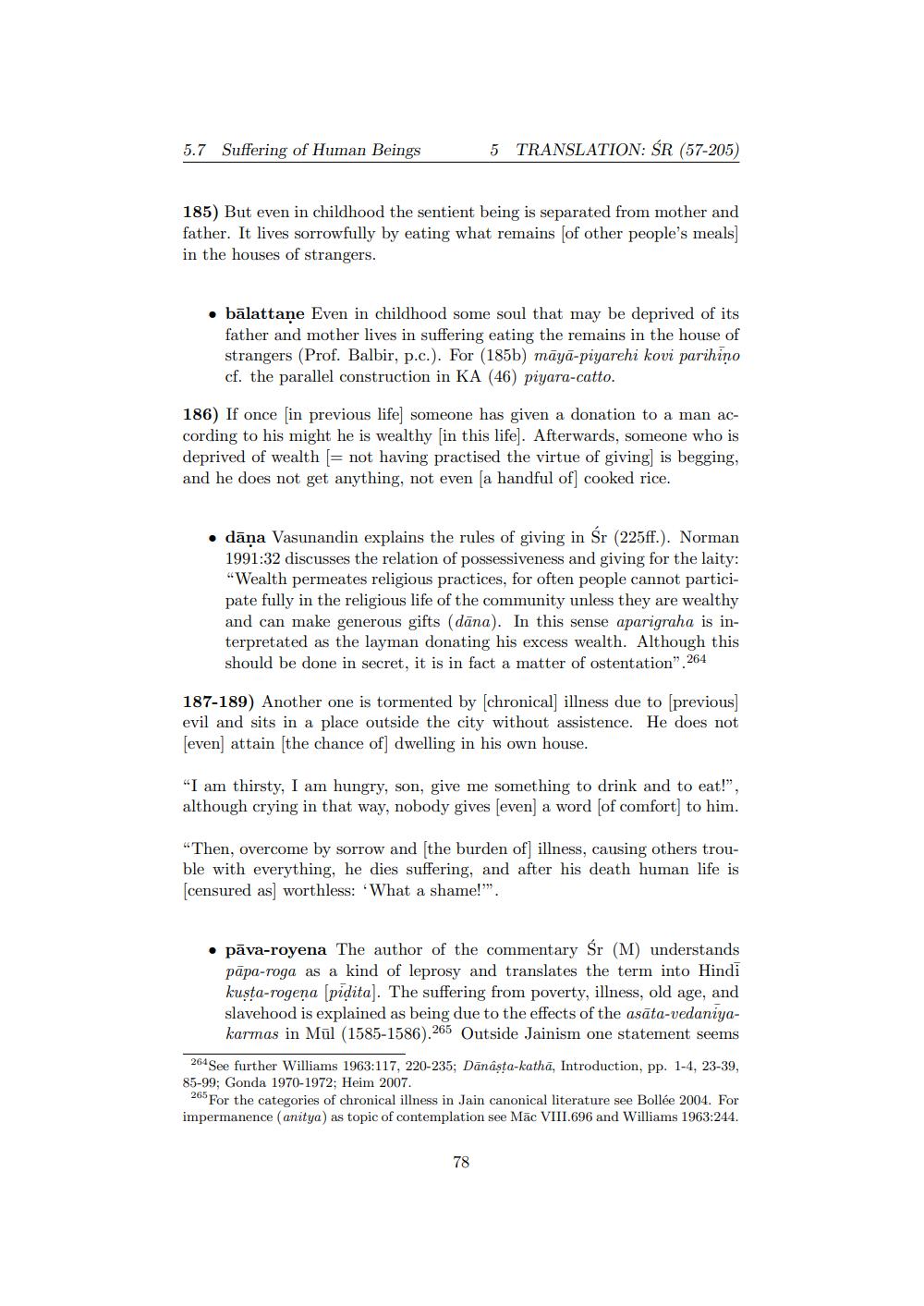________________
5.7 Suffering of Human Beings
5 TRANSLATION: ŚR (57-205)
185) But even in childhood the sentient being is separated from mother and father. It lives sorrowfully by eating what remains of other people's meals in the houses of strangers.
. bālattane Even in childhood some soul that may be deprived of its
father and mother lives in suffering eating the remains in the house of strangers (Prof. Balbir, p.c.). For (185b) māyā-piyarehi kovi parihiņo cf. the parallel construction in KA (46) piyara-catto.
186) If once in previous life) someone has given a donation to a man according to his might he is wealthy in this life. Afterwards, someone who is deprived of wealth (= not having practised the virtue of giving) is begging, and he does not get anything, not even a handful of cooked rice.
dāna Vasunandin explains the rules of giving in Sr (225ff.). Norman 1991:32 discusses the relation of possessiveness and giving for the laity: "Wealth permeates religious practices, for often people cannot participate fully in the religious life of the community unless they are wealthy and can make generous gifts (dana). In this sense aparigraha is interpretated as the layman donating his excess wealth. Although this should be done in secret, it is in fact a matter of ostentation" 264
187-189) Another one is tormented by chronical] illness due to previous evil and sits in a place outside the city without assistence. He does not [even attain the chance of] dwelling in his own house.
"I am thirsty, I am hungry, son, give me something to drink and to eat!", although crying in that way, nobody gives even a word of comfort to him.
"Then, overcome by sorrow and the burden of illness, causing others trouble with everything, he dies suffering, and after his death human life is [censured as worthless: 'What a shame!"".
• pāva-royena The author of the commentary Śr (M) understands
pāpa-roga as a kind of leprosy and translates the term into Hindi kusta-rogena pidita). The suffering from poverty, illness, old age, and slavehood is explained as being due to the effects of the asāta-vedaniyakarmas in Mül (1585-1586).265 Outside Jainism one statement seems
264 See further Williams 1963:117, 220-235; Dānasta-kathā, Introduction, pp. 1-4, 23-39, 85-99; Gonda 1970-1972; Heim 2007.
265 For the categories of chronical illness in Jain canonical literature see Bollée 2004. For impermanence (anitya) as topic of contemplation see Māc VIII.696 and Williams 1963:244.
78




